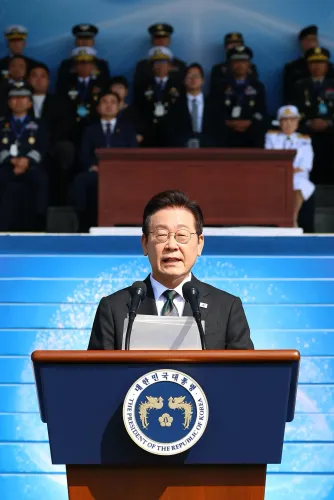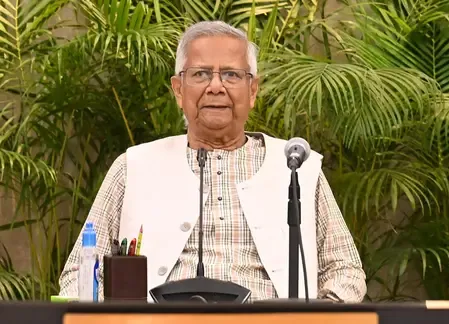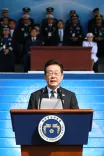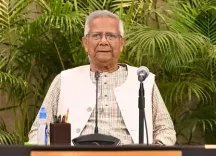Has South Korea's Cabinet Approved a Bill to Abolish the Prosecution Office?
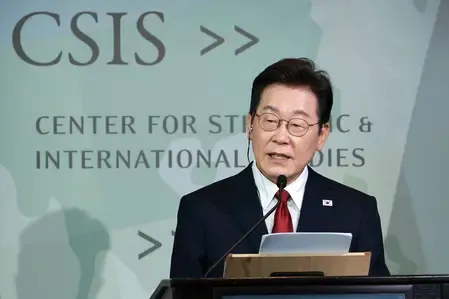
Synopsis
Key Takeaways
- South Korean Cabinet has approved a significant government reorganisation bill.
- Prosecution office will be abolished, ending 78 years of its operation.
- New agencies will take over the prosecution’s functions.
- Major restructuring of ministries, including the finance ministry.
- The KCC will be dissolved, leading to new oversight bodies.
Seoul, Sep 30 (NationPress) The Cabinet of South Korea on Tuesday endorsed a revolutionary government reorganisation bill aimed at dismantling the prosecution office and removing budget planning responsibilities from the finance ministry.
This legislation, marking the first of its kind under the leadership of Lee Jae Myung, was ratified by the National Assembly last week during a plenary session that was boycotted by the principal opposition party, People Power Party, as reported by Yonhap news agency.
The bill was sanctioned during a Cabinet assembly led by President Lee Jae Myung, along with additional proposals for renaming parliamentary committees and disbanding the Korea Communications Commission (KCC).
According to amendments to the Government Organisation Act, the prosecution office is set to be dissolved in October of next year, ending its 78-year existence, and will be succeeded by two new entities responsible for investigative and indictment functions.
A new serious crimes investigation agency will operate under the interior ministry, while the indictment office will fall under the justice ministry.
This reform comes in response to persistent criticism regarding the prosecution's misuse of its exclusive powers for politically motivated inquiries.
Moreover, the Ministry of Economy and Finance will be divided into the Ministry of Finance and Economy, with a new planning and budget office established under the prime minister's office. This change will take effect in January next year.
Additional ministries will undergo name changes and restructuring starting Wednesday, following the promulgation of the revised bill.
The environment ministry will transition to the ministry of climate, energy, and environment, while many energy departments from the Ministry of Trade, Industry and Energy (MOTIE) will be transferred to the new environment ministry. MOTIE will also be rebranded as the Ministry of Industry and Trade.
The Ministry of Gender Equality and Family, previously known as the Ministry of Women and Family, will continue with its new title, while Statistics Korea and the Korean Intellectual Property Office will be upgraded to the national data office and the intellectual property office under the prime minister, respectively.
The deputy prime minister for social affairs office, which was concurrently held by the education minister, will be dissolved; however, both the finance minister and the science minister will serve as deputy prime ministers.
The bill that abolishes the KCC, the national telecommunications regulator, mandates the creation of a new entity to oversee the broadcasting and telecommunications sectors.
Upon enactment on Wednesday, the current KCC chief, Lee Jin-sook, will be automatically removed from her position following months of strife with the Lee administration over her alleged failure to maintain political impartiality.
Lee was appointed by former President Yoon Suk Yeol in July 2024 to serve a three-year term.

